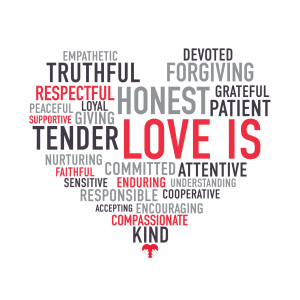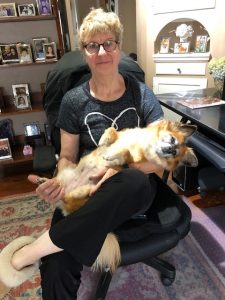
Through e-mail, I agreed to pick up and return my friend Katherine to the airport. Two weeks before her arrival, something came up that required me to change plans for transporting her back to the airport. Still through e-mail, I assured her I would find someone to give her a ride back.
She arrived and I was there to greet her. After some time together, I confirmed I was unable to give her a ride back to the airport. The news came as a shock. Nothing I said could convince my friend that I had sent a second e-mail two weeks earlier; she thought I was lying.
I can be stubborn, and I can be argumentative. But for too many years being obstinate and confrontational did nothing to resolve my conflicts. And clinging to the notion that I had to be proven right only added fuel to the fire in the disagreements I had with others. Through experience I learned the most positive action was choosing to overrule my self-centered ego.
It was not easy, but the truth was that no matter how much I wanted validation from Katherine, there was absolutely nothing to be gained by arguing with her. Leading with the heart is caring more for friendship than pride, so I chose to let go of my ego’s need to be recognized as right. I did not want to be angry with her, nor did I want our time together to be uncomfortable. The only option I saw to ensure peace of mind was to be patient, accept what was, and allow the situation to resolve itself.
A few weeks after my friend returned home, she was having repairs made to her computer when several mysteriously lost e-mails arrived in her in-box. Among them was the one I had sent.
I do not believe it is possible for us to agree with everyone all the time about everything. I do believe it is possible for us to stay agreeable when disagreeing. And simply because we disagree with someone does not mean that person is wrong.
My friend was also right! She had not received my e-mail before she left. Yet, for many months after returning home, she was distant. She was embarrassed for not giving me the benefit of the doubt. She was upset at herself for allowing hurt feelings to invent all sorts of reasons to justify turning her back on me. She was also angry at herself for discounting my history of honest and loyal behavior. She was frustrated for permitting herself to invent ego-illusions that my innocent actions were a personal attack.
In the overall design, you and I are only alive for a very brief period—much too short to waste time holding a grudge or settling for drama, fear, and sadness. When we place more importance on being proven right than we do on our relationships, we have, in essence, donned flowing silk robes and placed ourselves in the middle of a dense rose garden. Life situations and interactions with other people become masses of twisted thorns that rip and tear at the fragile material. No matter how painful the thorns are or how deeply they tear at us, we are uncomfortable shedding the robe of our prideful self-image. Without our egocentric self-view, who will we be?
With pride at stake, we do not stop to question the cost of being right. An egocentric mind does not care about the feelings of friends, family, or strangers. Wounded ego is not content unless the whole world accepts we are indeed right and someone else is wrong. And on the occasions we are the one who is wrong, our ego is not interested in voluntarily confessing our guilt; we are fine remaining quiet as a mouse sneaking off with a piece of cheese.
To lead with our heart, we let go of the need to be acknowledged as right—even when we are. While there may be two sides to every story, there is only one truth between them. Truth has a way of surfacing eventually, making relationships worth much more than egotistically defending our personal pride.










